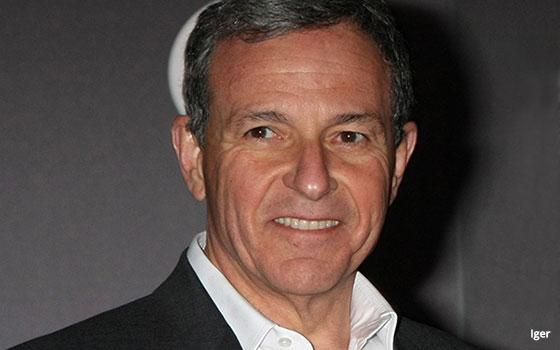Commentary
Big Media Companies Tease Their OTT Future
- by Alex Weprin , Staff Writer, November 13, 2017
If there was one theme that would sum up the quarterly financial earnings calls of the big television companies this past quarter, it would be “over-the-top is coming, and we are ready for it.”
Whether these companies really are ready will be up to consumers to decide, but there is no question that just about every traditional media company is now betting big on OTT.
Nowhere was that more clear than at Disney. With revenues and income down year over year, CEO Bob Iger shifted the focus on his company’s earnings call to the company’s two forthcoming OTT services: ESPN+, which will launch in 2018, and a Disney-branded service that will launch in late 2019.
ESPN+ will feature more than 10,000 live sporting events that aren’t covered on the linear channel. It will be available on ESPN’s digital and mobile platforms.
“We’ve never lost our bullishness on ESPN,” Iger told analysts on the call. “We like where ESPN is these days, and we believe that one of the best things we have going for ESPN is new technology that allows people to watch sports on new platforms, and wherever they are.”
ESPN+ will be advertising-supported, built with technology Disney acquired when it bought a controlling stake in technology company BamTech earlier this year.
“BamtTech offers us far more capabilities as it relates to addressable ads, inserted live on a dynamic basis into live sporting events, so that gives us a lot of capability that we did not have before,” Iger said.
The Disney service, meanwhile, will not have traditional advertising, though Iger said the company may allow for sponsorships. The new service will be priced below Netflix fees, to account for a library of content that is not as large as the streaming behemoth.
Still, the company will make between four and five original movies and four or five TV series for the service each year. Those series will include a live-action "Star Wars" show and a new Marvel project.
CBS also used its earnings call to boast about OTT -- namely, CBS All Access, its direct-to-consumer streaming service. The network revealed that it would be rebooting “The Twilight Zone” for the service in 2018. It will also be expanding the service to Canada and Australia.
“We're not managing All Access for margin,” said CBS CFO Joe Ianniello on the call. “We are growing, we're making investments and putting more and more series on it because, again, the long-term ROI is very, very, very attractive… Our litmus test is, is the product that we're putting on growing subs? And as long as it continues to grow subs, we're going to feed it.”
At 21st Century Fox, the OTT focus was on Hulu and other skinny streaming video bundles. Fox, which owns Hulu along with Disney, NBCUniversal and Time Warner, has long played a hands-on role at the company. Both Hulu’s former CEO and its new CEO are former Fox executives.
“The so-called pay-TV universe is actually going to grow,” 21st Century Fox CEO James Murdoch said, citing these streaming bundles.
Ianniello at CBS struck a similar chord. “The success or failure of various skinny bundles doesn't matter to us -- because when people cut their cord, they're not going nowhere. They're going somewhere,” he said. “So they're on a traditional bundle or one or two of the skinny bundles, or All Access.”
Whether these traditional media companies embrace a direct-to-consumer future, as Disney appears to, a bundled future, as Fox is focused on, or a combination of the two -- CBS' strategy -- the one common bond is that consumers appear poised to continue to to pay for TV content. The question these companies are asking themselves is whether their strategies will deliver the viewership and revenues to lead them into the future.



